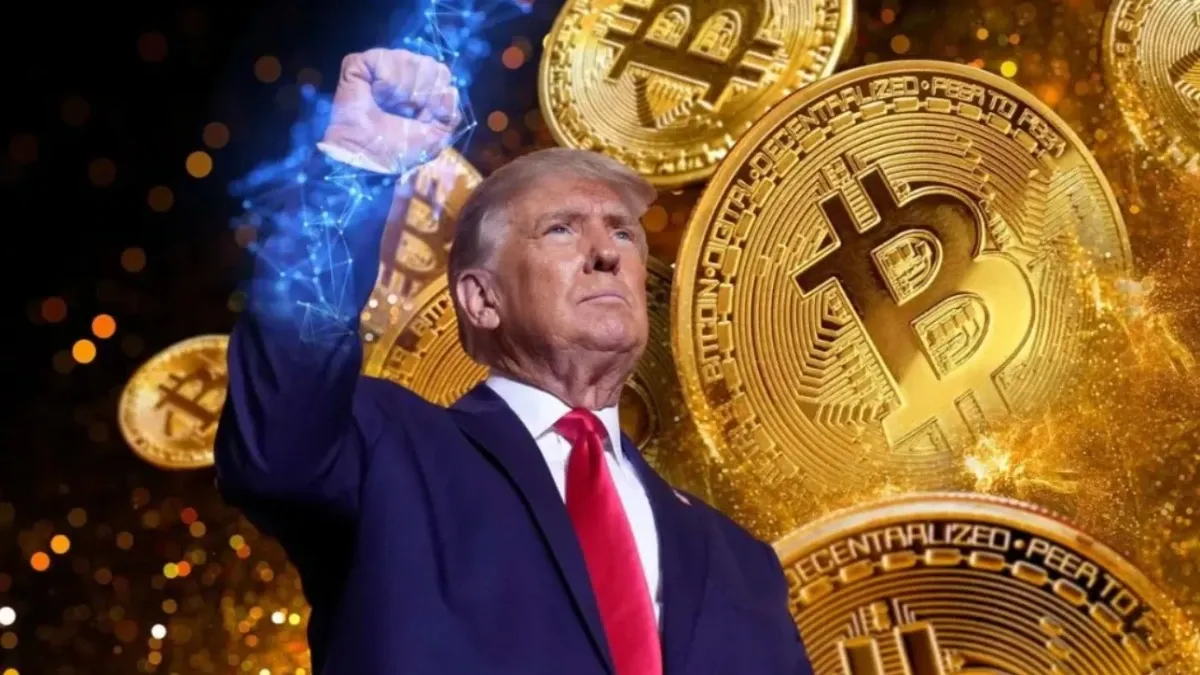How a Trump Presidency Could Impact Cryptocurrency: What’s Ahead for Bitcoin and the Market
Explore how a Trump presidency could shape cryptocurrency with pro-business policies, strategic Bitcoin reserves, and new financial products. Find out more.

How a Trump Presidency Could Change the Future of Cryptocurrency: What to Expect Over the Next Four Years
As the world watches the political landscape shift, cryptocurrency enthusiasts are paying close attention to how a potential Donald Trump presidency might shape the crypto industry over the next four years. The early signs are promising, with a post-election rally that saw Bitcoin soar by nearly 40%, signaling strong optimism among investors. As we look toward 2025 and beyond, many are wondering: will a Trump presidency benefit the broader crypto market, or will it predominantly boost Bitcoin's dominance?
In this article, we’ll explore the possible changes to the crypto landscape under a Trump administration, including regulatory reforms, the potential creation of a strategic Bitcoin reserve, and the introduction of new financial products. We’ll also delve into how these shifts could affect the market and whether Bitcoin will continue to hold its spot as the top cryptocurrency.
A Pro-Business Regulatory Environment for Crypto
One of the most anticipated outcomes of a Trump presidency is the shift toward a pro-business regulatory environment for cryptocurrency. Under the current administration, many crypto investors have voiced concerns over the regulatory approach led by SEC Chairman Gary Gensler, who has been widely perceived as anti-crypto. However, the upcoming transition in leadership could result in substantial changes to how cryptocurrency is regulated in the U.S.
Key Changes to Expect in Crypto Regulation
A major change that could unfold by 2025 is the passage of new legislation designed to modernize the U.S. financial system and embrace crypto assets. The Financial Innovation and Technology for the 21st Century Act has already been approved by the House of Representatives, and it’s expected that this legislation could pass if the political will is there. This could usher in the Commodity Futures Trading Commission (CFTC) as the lead regulator for crypto, replacing the SEC as the key oversight body.
This shift would likely result in eased regulations for the crypto market, particularly for cryptocurrencies that have had run-ins with the SEC, like Cardano (ADA) and Solana (SOL). These cryptocurrencies, which were part of the SEC’s list of potential securities in 2023, could see a boost in their fortunes if regulatory pressures ease.
Impact on the Market
A pro-crypto regulatory environment under Trump could encourage institutional investors to dive deeper into the market, giving rise to greater mainstream adoption. The SEC’s diminished role in regulating cryptocurrencies may create a more favorable environment for innovation in the space, potentially allowing for more crypto-related products to emerge.
Crypto as a National Strategic Priority: The Strategic Bitcoin Reserve
Another exciting prospect during a Trump presidency is the establishment of a strategic Bitcoin reserve. Much like the U.S. Strategic Petroleum Reserve, this could be a massive stockpile of Bitcoin held by the government and used in times of economic instability to smooth out rough patches. In fact, Senator Cynthia Lummis (R-Wyoming) has already introduced the Bitcoin Act of 2024, which would commit the U.S. government to buying 1 million Bitcoins over the next five years. This would represent around 5% of the total Bitcoin supply.
Why This Is Important
If passed, this legislation would make the U.S. a crypto superpower, signaling a major shift in how Bitcoin is viewed on the global stage. It could also be used as a tool to help manage national debt, which currently stands at a staggering $35 trillion. By accumulating Bitcoin, the U.S. would increase its influence in the global financial system, positioning the country as a leader in the emerging crypto economy.
Global Implications of a Bitcoin Reserve
The idea of a strategic Bitcoin reserve isn’t exclusive to the U.S. In fact, Brazil has already proposed creating a similar reserve, intending to hold Bitcoin as part of the country’s international reserves. This trend could gain momentum, with other countries exploring the possibility of accumulating Bitcoin to stabilize their national currencies, support international trade, or launch central bank digital currencies (CBDCs).
New Financial Products for Crypto Investors
Under a Trump presidency, we could also see the introduction of new financial products that make it easier for investors to gain exposure to cryptocurrency. One of the most notable recent developments is the launch of spot Bitcoin ETFs, which allow investors to buy Bitcoin through traditional investment vehicles. This is just the beginning—look for a wide range of new crypto-related financial products to become available in the coming years.
Potential for New Products
For example, perpetual futures contracts, a popular product offered in other countries, could eventually become available to U.S. investors. These contracts allow traders to take leveraged positions on Bitcoin and other cryptocurrencies, offering greater exposure and potential for profit (though with increased risk). Currently, Coinbase offers these contracts to international customers, but they’re not available to U.S. investors due to concerns over leverage and volatility.
As the crypto market matures, the introduction of such financial products could drive further institutional adoption of cryptocurrencies as an asset class, expanding the ways that investors can participate in the market.
Will Bitcoin Remain the King of Crypto?
While the broader crypto market stands to benefit from the regulatory and financial shifts expected during a Trump presidency, Bitcoin will likely remain the primary beneficiary. The cryptocurrency has already established itself as the most trusted and widely accepted digital asset in the world. Should the U.S. government create a strategic Bitcoin reserve, Bitcoin will be positioned as a symbol of America’s economic power, making it even more attractive to institutional investors.
Bitcoin’s Cyclical Nature: What to Expect
However, it’s important to keep in mind that Bitcoin operates in cycles, largely influenced by its halving events, which occur once every four years. These cycles often lead to market crashes, followed by new all-time highs. It’s likely that over the next four years, we will see at least one significant market correction, but if the regulatory environment continues to improve, Bitcoin’s long-term growth potential remains strong.
In the long run, Bitcoin’s resilience and track record of recovery after downturns make it an attractive investment, even amidst volatility. If the market sees another wild speculative frenzy, it could eventually lead to a market crash, but Bitcoin has shown time and again that it can rebound and set new records.
Is Now the Right Time to Invest in Bitcoin?
As for whether Bitcoin is a good investment at this moment, it depends on your risk tolerance and investment strategy. If you’re considering investing $1,000 in Bitcoin, it’s important to remember that cryptocurrency can be highly volatile. While a Trump presidency may provide the positive regulatory environment that benefits Bitcoin, it's still a market subject to cyclical swings.
For those interested in the long-term potential of Bitcoin and other cryptocurrencies, the next few years could present an opportunity to buy at lower prices during a market dip. However, it’s also wise to diversify your investments to mitigate risk.
Final Thoughts: Trump and Cryptocurrency’s Future
A Trump presidency presents a unique opportunity for the crypto market. With pro-business policies, strategic Bitcoin reserves, and new financial products on the horizon, the next four years could set the stage for Bitcoin and other cryptocurrencies to reach new heights. While there will undoubtedly be ups and downs along the way, the overall trend points toward a more favorable environment for crypto innovation and adoption.
If you’re looking to invest in cryptocurrency, keeping an eye on regulatory changes and Trump’s policies over the next few years will be key to understanding the broader market shifts.



